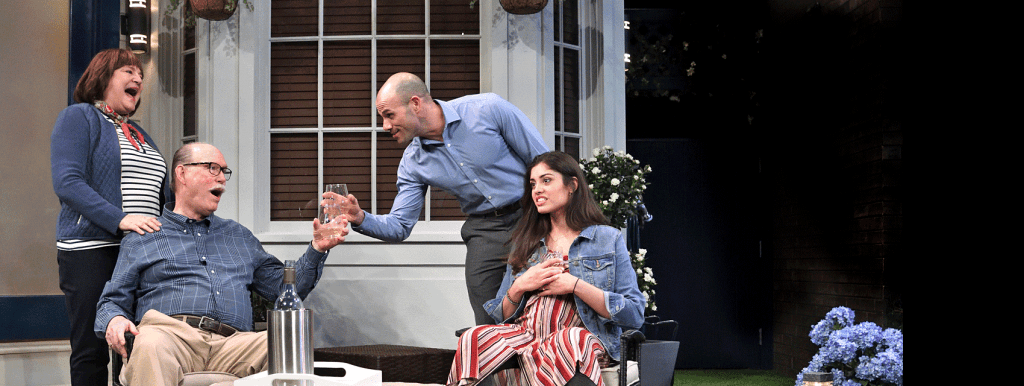 What Theater Means to Me, by Baron Pugh
What Theater Means to Me, by Baron Pugh
I remember the first theatrical performance I ever saw. I was about 10 or 12, living in Virginia, and my middle school took us to see Little Shop of Horrors. And I remember sitting in that dark auditorium with the giant Audrey II puppet and all the actors bursting into song… I absolutely hated it; I didn’t understand it; I didn’t WANT to understand it. So of course, I would never step foot into a theater again, right? Well, since you are reading this on a theater company’s blog, I’m sure you know the answer to that question.
What I would come to learn is that theater is an experience, and one that you must be willing to fully give yourself into in order to enjoy. At such a young age, it was difficult for me to appreciate that experience, but as I got older, my appreciation for, and understanding of theater grew. I break the theatrical experience down into two elements: the audience and their reactions, and the play itself.
The audience you are with will impact how you take in a performance. Of course, you tend to have the person who unwraps candy right behind you, or the person who didn’t turn off their phone, or even the person who keeps getting up to go to the bathroom. Those will generally color your experience and enjoyment in a negative way. But the ones that are exciting to me and worthwhile, are the moments where the entire audience gasps at the same time, applaud at the same time, and my personal favorite, when someone is so moved or impacted by a moment that they can’t help but to vocally respond. I know many may find that last one a distraction, but how is that any different from other collective responses you may have? For me, it says that that person is so connected with what is happening on stage, that they NEED to say something, like people who respond to the TV when their team’s quarterback gets sacked or when the wide receiver misses a perfectly good pass.
The play itself, whether a drama, period piece, comedy, or musical, is just a story at its core. But the term ‘story’ can often lead people to think of it as fictional and irrelevant to their life experiences. Stories are much more than that, though. In the early ages of theater, plays explained history, tradition, creation. They were stories that revealed to the audience important life lessons. Today’s plays do the same. I often say that a play is a reflection of what is going on either in your life or the world around you. And though a play may have been written during an earlier time period, don’t assume that the life lessons will be dated. Instead, a story written in a different era takes on new and different meaning in the present. Take for example, Arthur Miller’s Death of a Salesman (1949). Through Willy Loman, the play addresses identity and the inability to accept change, and how that impacts a person and their relationships. 1940’s America is quite different from today, and though Miller’s story hasn’t changed, today’s audiences bring with them current events of a world pandemic, social injustice, and other global and economic impacts that change how we perceive the play and its characters.
To explain what theater means to me, I felt it important to mention the above as it explains my simply written answer. To me, theater means, and is all about, life experiences. Theater allows us that peek under the rug, to look in the mirror and face the good and the bad within ourselves and within society. It allows us to evaluate the choices we make in life and better the world we live in.
By the way, Little Shop of Horrors grew to be one of my all-time favorite shows.
—Baron Pugh is Trinity Rep’s box office manager and a scenic designer whose recent work includes productions at Trinity Rep (Radio Golf), and at theaters around the region and country.
Pictured above Jude Sandy in Little Shop of Horrors (2018-19 Season). Directed by Tyler Dobrowsky.

